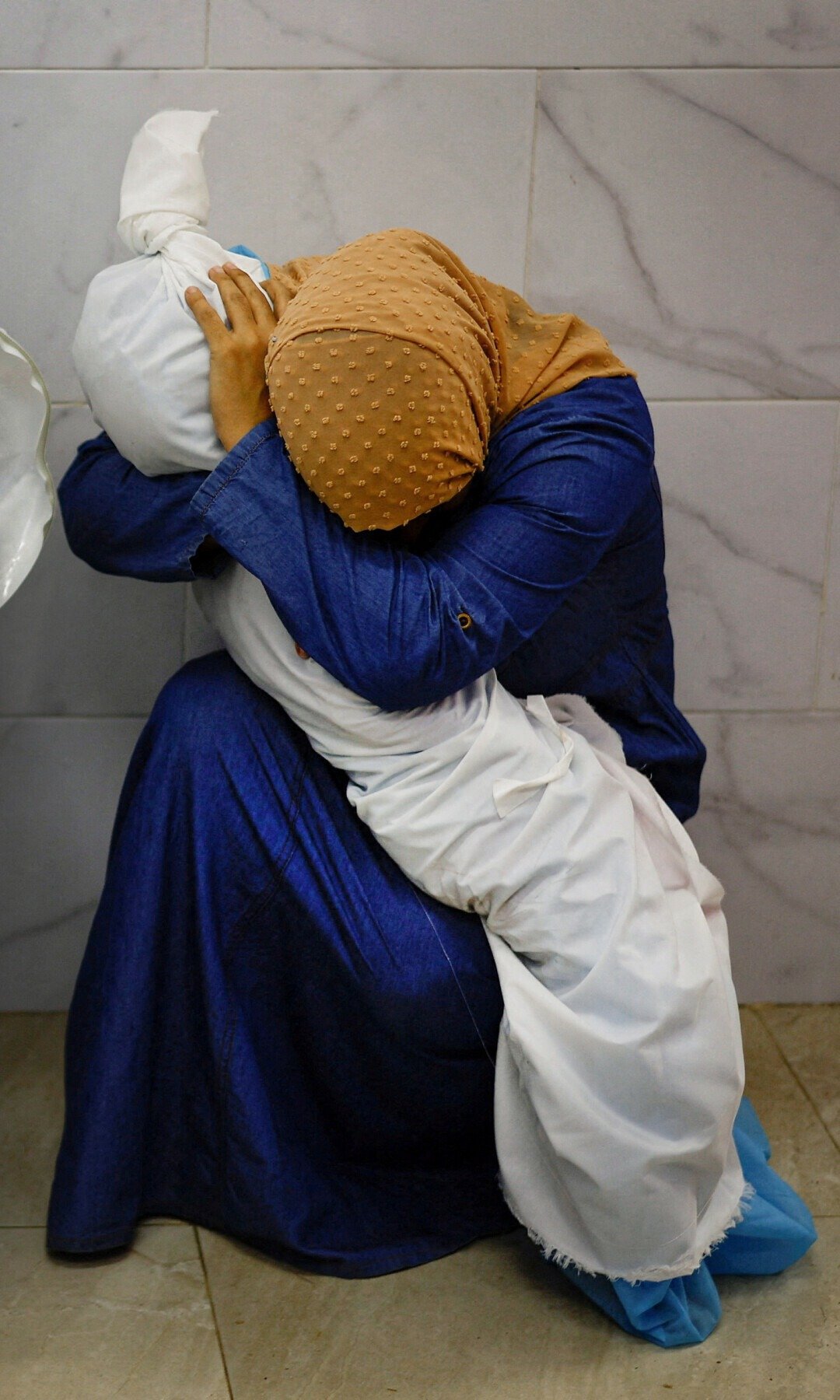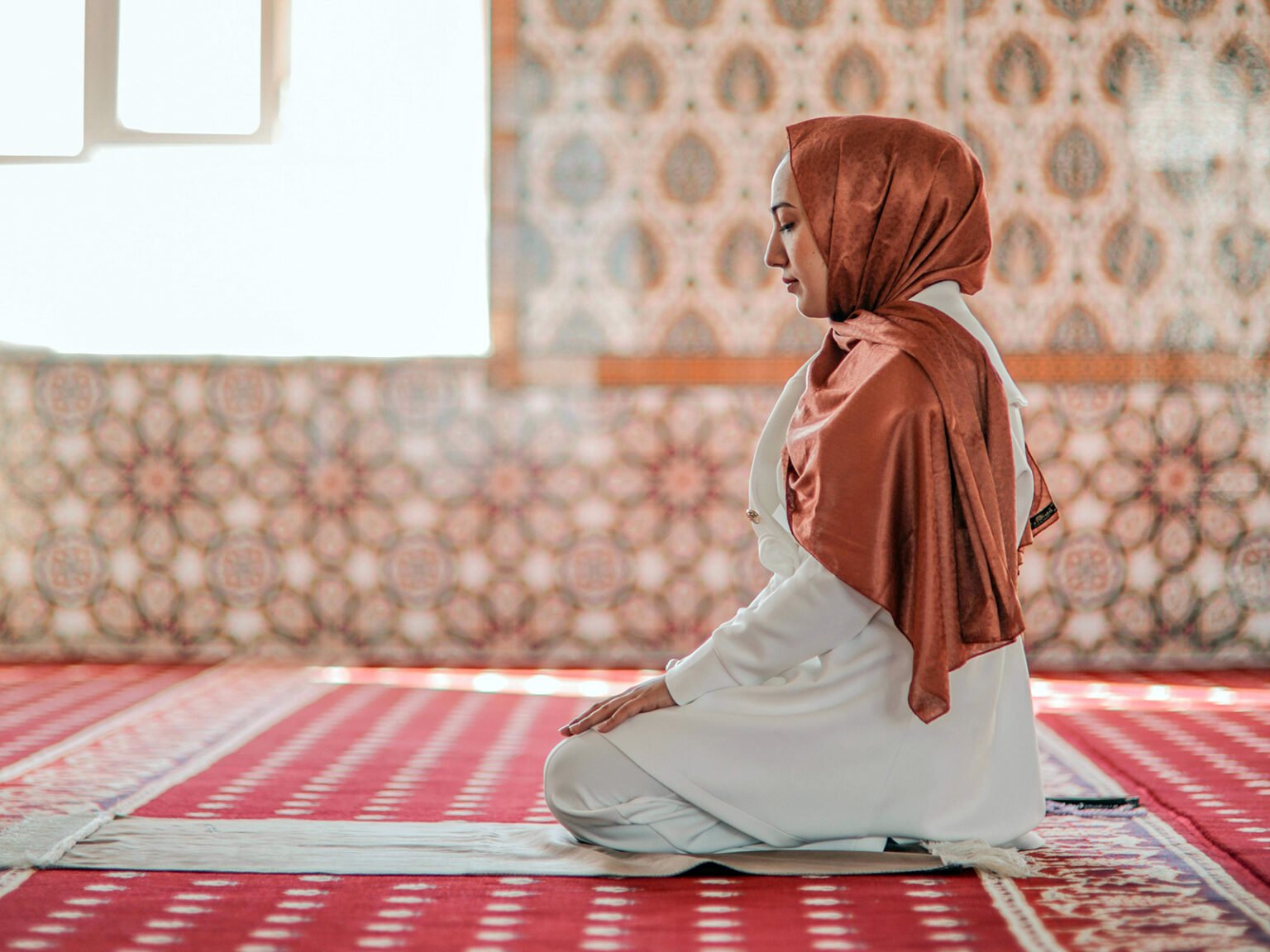
On that fateful day one year ago, October 7, 2023, I was just about 3 months pregnant. In the weeks that followed, as conflicting analyses were thrown around media outlets and as emotions continued to heighten both on and off screen, I tiptoed around conversations with vagueness and became hyper-vigilant of boundaries, restraint, and respect within social circles despite feeling utterly outraged. But there is nothing respectable about unrestrained war crimes — a genocide.
Like many others, my social media feed exposed me to image after image, video after video, of the Israeli military’s atrocities against Palestinians in Gaza. The images of shrapnel seared into the bodies of innocent Palestinian civilians over the past year have seared into my brain like scars. A mother silently mourning as she tightly hugs a small body bag containing a dead child. An incubator with shriveling babies approaching their death following a hospital bombing. A young girl hanging limp over the window of her destroyed home. A grandfather caressing the soul of his soul. Toddlers shaking uncontrollably, lone survivors of their families, eyes widened from shock, bodies and minds beginning to process the trauma that will remain with them for the rest of their lives. Many of these images were censored on my social media feed, black squares politely asking me whether I still wanted to view the photo that it concealed, apparently too heinous to set eyes on (and yet not heinous enough to end in reality). But there was always the occasional image that slipped by uncensored. In those moments, I wished I had not logged on. I cried often. I was pregnant, but these tears were not hormonal. They were human. I couldn’t stop scrolling, but at the same time, I forced myself to tear my eyes away from the screen. I did not choose ignorance, but felt compelled to limit the horrors that I was absorbing, as if to protect the baby that was living through me.
It was an unusual time to be pregnant, to be growing a new life as I witnessed the lives of others being ended so mercilessly. I reflected a lot on the parallel lives we lived. The random fate of being born into safety and health. The privilege of being able to look away and switch off. The cruel injustice of it all. As I prepared for the birth of my son, over the span of one year of genocide, 20,000 babies were born in Gaza. As I prepared for the future of my child, over 16,000 children were killed, futures completely obliterated. Of the 1.1 million children in Gaza, those that survived now faced a future of malnutrition, disease, physical disability, and psychological trauma. As I attended my prenatal appointments regularly and received quality care for a healthy birthing experience, I read about the horrific and life-threatening conditions that 50,000 expectant mothers in Gaza endured, birthing in unsanitary conditions on rubble-filled floors with limited access to medication. As I attempted a VBAC to birth my child, I was disappointed to learn that I would have to deliver my baby through another C-section. My disappointment was quickly abated when I remembered the mothers who were forced to undergo emergency C-sections with no anesthesia. While I felt the pain from the stitches of my C-section for weeks, I could not conceive of the unfathomable pain of these mothers and the trauma that will forever be bound to the memories of how they welcomed their babies into the world.
I felt many moments of helplessness and even felt a sense of hypocrisy for living and watching from afar, but found different ways to cope. I wrote. I signed petitions. I shared information. I read and discussed. I silently reflected. And yes, at times, I also dissociated.
Though my pregnancy felt challenging, my baby boy arrived, healthy and present. When I kissed and caressed and gently wrapped his little body in soft swaddles, I kept getting intrusive flashbacks of those babies whose tiny bodies were maimed before their first birthday, and of those who did not even reach this milestone at all, wrapped in white shrouds. There were times I wondered about the purpose of bringing new life into this world full of anger and injustice and pain.
But if there is anything I have learned from the Palestinian people, it is their deep-rooted resilience, stemming from the Quran (3:173): Hasbunallahi wa ni’mal wakeel, “Sufficient is God, and He is the best conductor of all affairs”. Seeing such faith in the face of such pain and inhumanity was a lesson for the world, for me. It made sense to me then that this, too, was our purpose in a world littered with inhumanity. To be carriers of hope, to be active agents building a more just world for us all. I prayed, then, for my baby to always stand for justice and be an unwavering voice for truth.
Some have questioned the efficacy of feeble taps of our fingertips when liking and sharing posts, of electronic signatures on forwarded petitions that may or not be acknowledged, of an email — sometimes prewritten templates and sometimes tailored to the recipient — that may or may not even be read, and of being present as a mere dot in one of thousands of protests across the globe. I can understand this doubt. It often seems as though the voices of the masses continue to fall on ears that are unwilling to listen, belonging to leaders who have failed to show leadership, who fumble around with words that lack meaning — humanitarian pauses and condemnations – and who certainly lack meaningful action. Even so, I always make it a point to turn back to the story of the frog who, when Abraham was thrown into the fire by the callous Nimrod, did his part by spitting water over the fire to help save him. The frog did not worry about the ultimate impact of a few drops over a raging fire, but was concerned more about his own contribution — the individual part he played in this unfolding story at this very moment in time that would eventually be written into history.
This past year has demonstrated that we all have, within our own capabilities, passions, and skillsets, in our respective spheres of life, the ability (and responsibility) to partake in this global, growing tide of activism. From Macklemore’s music to Banksy’s art, from the articles and poems we read and write to the dinner-table conversations we partake in using the knowledge we choose to seek, from the silent donning of a keffiyeh to the ways in which we raise and speak to our children about the world and its people, we all have a part to play. The beauty of advocacy and activism is that it is multifaceted and as diverse as we all are. And when this diverse activism merges together from around the world, it creates a strong mosaic that cannot be unraveled.
Over the course of a year, we have contributed our drops in the sea and have watched the sea swell and roar. Never has the world been so vocal in their support for a free Palestine. Boycotts have proven successful and though many have lost their jobs for speaking out against the Israeli army’s war crimes, we have seen the emergence of a media outlet that questions the status quo and dares to bring challenging conversations to the forefront so that we no longer have to tiptoe carefully around the subject of an ongoing genocide.
Today, as the onslaught continues into Lebanon with over 2000 people killed and a million displaced, we will continue to learn, speak, cry, create, call out, and call it like it is. In doing so, we will watch the tide continue to rise, from the river to the sea, until injustice is swept away from the shore.


